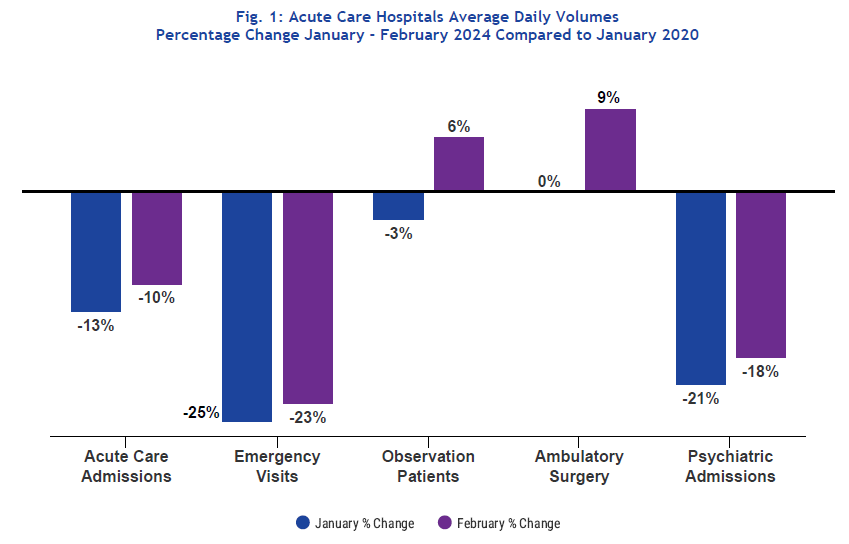February 2024 Utilization Report
Highlights: Looking at average daily volumes, all five of the highlighted metrics (Fig. 1) saw an increase in volumes from January to February 2024: acute care admissions went from -13% in January to -10% in February below pre-COVID baselines, and emergency department visits went from -25% to -23% and psychiatric admissions went from -21% to -18% below baselines in February. Observation admissions and ambulatory surgeries both continue to show recovery to pre-COVID baselines going from -3% to 6% and 0% to 9% above baseline respectively.


